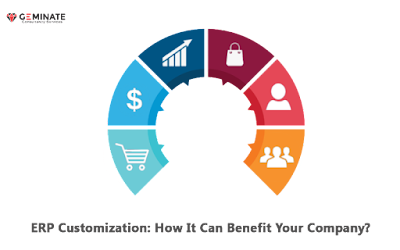Many businesses value open source CRM software because of its flexibility and ability to provide contact and lead management customizations that work for a specific sales flow. Using an open source CRM can also give you more control over your data and help you increase team productivity by developing solutions that are tailored to your needs.
The Best Open Source CRM in 2022
1) SuiteCRM:
Why Did We Choose It?
If you need an open source CRM to build integrations or create your own version, SuiteCRM is the best all-in-one solution for you. It provides unlimited leads and contacts as well as in-depth analytics and reporting to assist you in making sound sales decisions. SuiteCRM provides the best out-of-the-box solution among all truly open source options.
SuiteCRM is a robust solution with numerous options. If you're looking for an open source solution that's comparable to Salesforce, this might be your best bet. This is a full-featured CRM with everything you'll need to run and customize your sales operations. When compared to many of the other reporting options on this list, the custom graphical reports look great and provide an extra layer of effectiveness.
While SuiteCRM has some of the best overall options, it can be difficult to install and use all of its features. The support plan options can also be more expensive when compared to other open source CRMs on the market. So, while this has the most power, you will need a strong technical team.
It's also worth noting that because this is a company based in London, the subscription fee is in British pounds. At the time of publication, the starting rate of £95.00 per month is approximately $125 USD per month. As exchange rates change, this price may fluctuate.
It's best for:
Anyone who needs a strong out-of-the-box solution and wants to make small changes to a CRM through the source code should look into SuiteCRM. Users looking for something with the power of Salesforce but is completely open source need look no further.
Pros & Cons
Tools for developing relationships that are unique to you
Every operating system is supported.
Because of the use of REST API, the integration is seamless.
It is necessary to download the software in order to use it.
The main helpdesk support is provided by the community.
Requires a high level of technical knowledge
2) Odoo CRM
Why Did We Choose It?
Odoo was picked because of its powerful suite of apps that work together to provide you with considerably more possibilities than just a CRM. Odoo is offered as a free download for open source use on your own, as well as add-on purchases and hosting. Odoo's entire suite of business tools makes it a powerhouse that can help you get all of your processes to work together flawlessly.
Although the product includes reporting, other choices offer more robust reporting. It's also worth noting that the technical skills required to take benefit of Odoo's top features may be higher than the average for other CRMs.
It's best for:
If you want a more all-in-one solution for your business operations, Odoo Customization is a wonderful CRM to consider. It's best suited to companies with the technological know-how to create their own app reporting. There are over 10,000 apps to link with, significantly more than other CRMs.
Pros & Cons
Apps that are fully connected to help you streamline your entire business.
It's simple to mix and combine the functions you require thanks to the modular architecture.
Over 10,000 apps are compatible with the open-source version.
When compared to other solutions, it is more difficult to utilize.
The number of reporting possibilities is restricted.
3) OroCRM
Why Did We Choose It?
OroCRM is a perfect fit for many enterprises, but especially e-commerce and retail-related ones, because it provides enterprise-level reporting. The reporting engine is powerful, allowing you to track everything from website revenue to customer frequency. OroCRM also has a marketplace that allows you to connect to third-party platforms, including Magento, Mailchimp, Zendesk, Amazon, and eBay.
OroCRM also performs well in terms of standard features. From lead management to assisting you in creating custom workflows for your team, the programmer has it all. The performance dashboards make it simple to track your team's progress, allowing you to track KPIs and assess overall business or product performance.
OroCRM's Community Edition is available at no cost. You'll need to contact them for a special quote if you're interested in the Enterprise Edition, which doesn't require you to host it yourself and has additional features.
It's best for:
OroCRM is perfect for e-commerce companies who need to modify their reporting or interact with a number of different software.
Pros & Cons:
Top e-commerce platforms are naively supported.
Reporting is easy to use and customizable.
Marketplace integrates with a large number of third-party applications.
Enterprise users are the only ones who get help.
There is no mobile app available.
4) YetiForce
Why Did We Choose It?
YetiForce provides a simple module system that may be customized to meet your company's specific needs. Before you try to personalize it for your purposes, you can choose from over 100 modules, making it incredibly adaptable and easy to use. It also works with a variety of company operations tools to give you visual information in one place.
YetiForce is also one of the most cost-effective open source CRMs because it is completely free to use; only optional add-on services are charged for. The optimized hosting plan, which starts at €45 a month (roughly $51 USD at the time of publishing) and ensures that you have support for a big number of users, is the most popular service that consumers choose. It's impossible to beat these prices, given the variety of customization and integration offered.
It's best for:
YetiForce is a low-cost, simple-to-use CRM that is best suited for companies that do not require a lot of technical knowledge. Because of the add-on module structure, these businesses will be able to change the program without having to touch much of the source code.
Pros & Cons:
A simple-to-customize module system
Email client that is native to the platform
Widget system with intuitive interface for immediate visual insights
The reporting isn't very good.
There is no native app available.
There is no lead scoring.
5) Vtiger
Why Did We Choose It?
Vtiger is a powerful CRM with one of the largest developer communities, allowing you access to a wide range of add-on and customization choices. Vtiger offers free 24-hour assistance by email, phone, or live chat, and it boasts one of the most friendly and easy-to-use interfaces of all open source CRMs.
While there are alternative options with more extensive CRM functionality and reporting systems, Vtiger has a robust community from which you can profit immensely. Once you've modified it to match your needs, it's simple to set up and use.
It's best for:
Vtiger is suitable for consumers that require a robust CRM that is browser-based out of the box, as well as those who merely require the most basic CRM capability. If your tech team isn't particularly big, this can be the best way to receive customization from its wide audience without having to dedicate a lot of resources to the project.
Pros & Cons:
Interface that is simple to use
Support is available 24 hours a day, 7 days a week.
To draw from, there is a large community of users and developers.
A hosting plan is required for many functions.
There aren't many advanced CRM features available.
6) CiviCRM
Why Did We Choose It?
Everyone can download and use CiviCRM for free. While there are no hosting alternatives, it is a very comprehensive and flexible solution that is completely free. CiviCRM is aimed towards organizations and has various features tailored to their needs, such as a donation tracker. The most common functions that most users would need are included in the basic package, and the reporting is excellent, with 40 customization reports built in.
It's best for:
CiviCRM is a free CRM that is ideal for small businesses. The programmer is primarily targeted at nonprofits, and its event and member management features make it ideal for these organizations.
Pros & Cons:
Over 40 of the most often used reports are included, all of which can be customized.
Can be readily integrated into content management systems (CMS), such as WordPress.
Capabilities in event management
The user interface isn't as user-friendly as some other solutions.
Customer service is solely available via email.
It's your responsibility to download and install it on your own hosting platform.
Methodology
We evaluated both the functionality you've come to anticipate from other CRM comparisons as well as the unique features that make an open source CRM distinctive when selecting the best open source CRM solutions. To assist you in customizing your customer relationship management system, we looked at everything from pricing to simplicity of use and functionality.
Some of the things we thought about were:
The ease with which it can be used.
We desired software that was not just simple to navigate and use without any adaptations, but also simple for your IT team to make changes to.
Costs.
We sought to make sure that all of the solutions on our list were reasonably priced for the services they provided. In comparison to the competition, the value for the money you'll have to spend was weighed to ensure that each solution is a feasible contender to utilize.
Functionality and features.
We wanted to see how easy it is to modify the source code and tailor the software to your own needs. We were also searching for elements that were present out of the box that would make the software a good platform before customization, such as analytical and customer database functionality.
Support.
When working with open source software, your tech team may need to contact the developers for help from time to time. When looking for a CRM open source system, it's critical that the support team is active and responsive.
Reputation.
In our criterion, the success of other firms or organizations in customizing each of these open source CRM platforms is critical. Long-term considerations include having a strong reputation as a product that people enjoy using, as well as a reputation for responsiveness and continual improvement.



